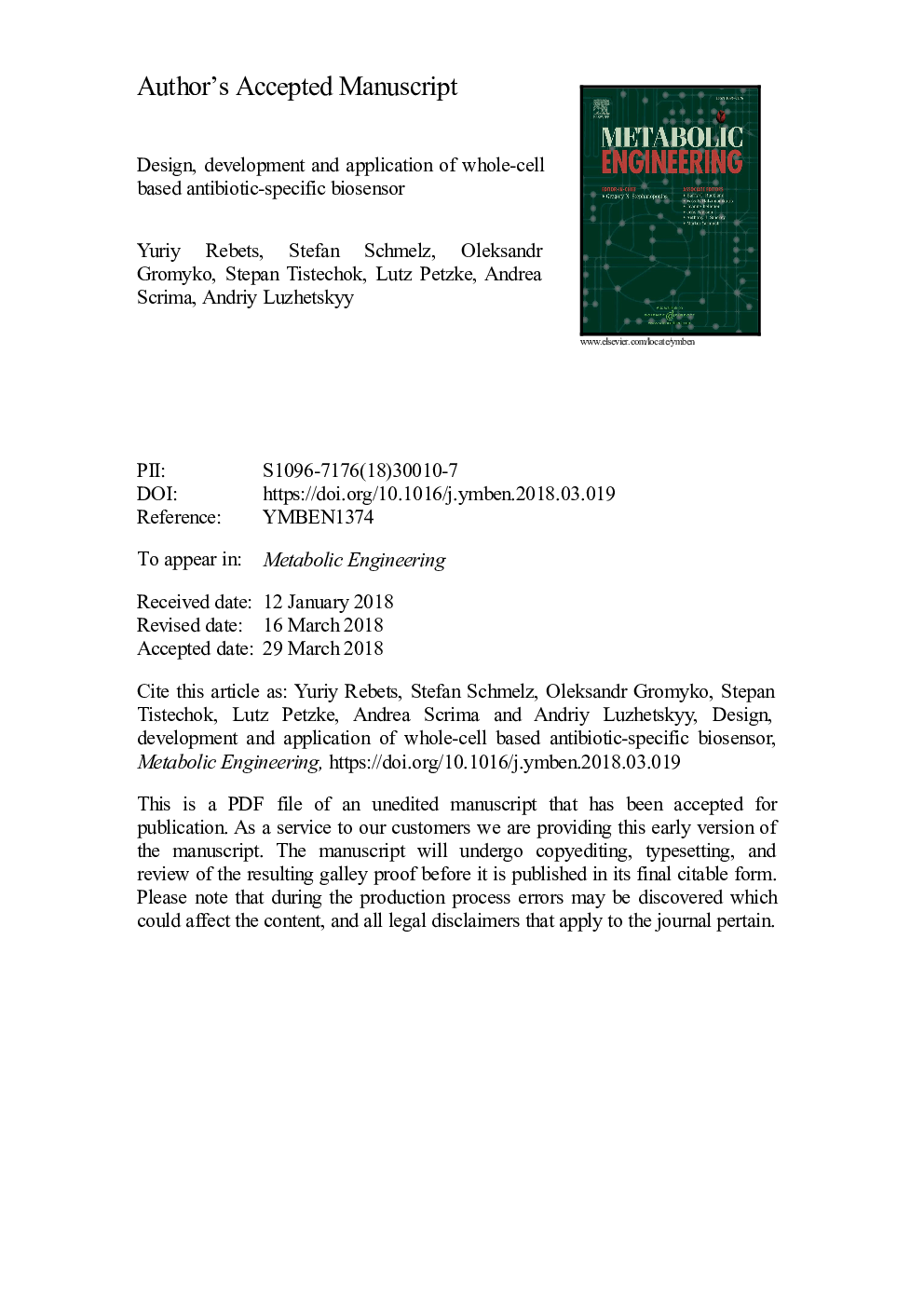| Article ID | Journal | Published Year | Pages | File Type |
|---|---|---|---|---|
| 6494085 | Metabolic Engineering | 2018 | 35 Pages |
Abstract
Synthetic biology techniques hold great promise for optimising the production of natural products by microorganisms. However, evaluating the phenotype of a modified bacterium represents a major bottleneck to the engineering cycle - particularly for antibiotic-producing actinobacteria strains, which grow slowly and are challenging to genetically manipulate. Here, we report the generation and application of antibiotic-specific whole-cell biosensor derived from TetR transcriptional repressor for use in identifying and optimising antibiotic producers. The constructed biosensor was successfully used to improve production of polyketide antibiotic pamamycin. However, an initial biosensor based on native genetic elements had inadequate dynamic and operating ranges. To overcome these limitations, we fine-tuned biosensor performance through alterations of the promoter and operator of output module and the ligand affinity of transcription factor module, which enabled us to deduce recommendations for building and application of actinobacterial biosensors.
Keywords
Related Topics
Physical Sciences and Engineering
Chemical Engineering
Bioengineering
Authors
Yuriy Rebets, Stefan Schmelz, Oleksandr Gromyko, Stepan Tistechok, Lutz Petzke, Andrea Scrima, Andriy Luzhetskyy,
